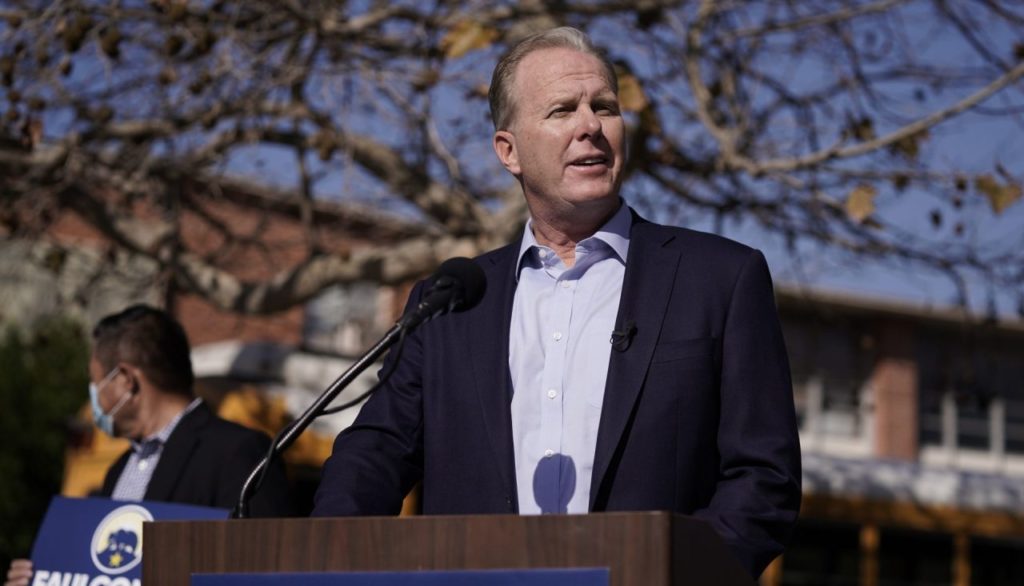SAN DIEGO (CNS) – Former San Diego Mayor Kevin Faulconer, who is running to replace Gov. Gavin Newsom in a recall election, is criticizing Newsom for a new rule that could shorten the sentences of 76,000 felons in California, including many who have committed violent crimes.
The changes were approved this week by the state Office of Administrative Law and were scheduled to take effect Saturday, although officials say it will be months or years before any inmates are released.
More than 63,000 inmates convicted of violent crimes will be eligible for good behavior credits that shorten their sentences by one-third instead of the one-fifth that had been in place since 2017. And more than 10,000 prisoners convicted of a second serious but nonviolent offense under the state’s “three strikes” law will be eligible for release after serving half their sentences.
And all minimum-security inmates in work camps, including firefighting camps, will be eligible for the same month of earlier release for every month they spend in a camp, regardless of the severity of their crime.
“The decision to release tens of thousands of violent criminals onto our streets is a blatant assault on public safety in California,” Faulconer said in a news release Friday. “This will put countless families at risk across our state.
“Reckless and dangerous decisions like these have become all too common under Gavin Newsom, and that’s why I’m leading the movement to recall him this year.”
Newsom’s campaign referred questions about the changes to the California Department of Corrections and Rehabilitation, which said the new rule for inmates is not an early release program.
“These changes do not result in the automatic release of any incarcerated individual,” said Vicky Waters, CDCR assistant secretary of communications. “Under statute, incarcerated individuals are able to receive credits for good behavior and participation in a rehabilitation program.”
The CDCR submitted the new rules to increase the rate at which inmates can receive good conduct credits, which ensures the opportunity for public comment, Waters said.
“The regulations are still subject to final approval,” she said. “And again, the regulatory process allows for public input.”
The corrections department enacted the rules through emergency regulations, but will submit permanent regulations next year at a public hearing, when the public will have an opportunity to comment.
The changes are being driven by a desire by federal judges to reduce the state’s prison population. The U.S. Supreme Court agreed with federal judges’ requirement that the state reduce overcrowding in a 2011 decision.
“The goal is to increase incentives for the incarcerated population to practice good behavior and follow the rules while serving their time, and participate in rehabilitative and educational programs, which will lead to safer prisons,” department spokeswoman Dana Simas said in a statement.
Copyright 2021, City News Service, Inc.
Suggest a Correction
